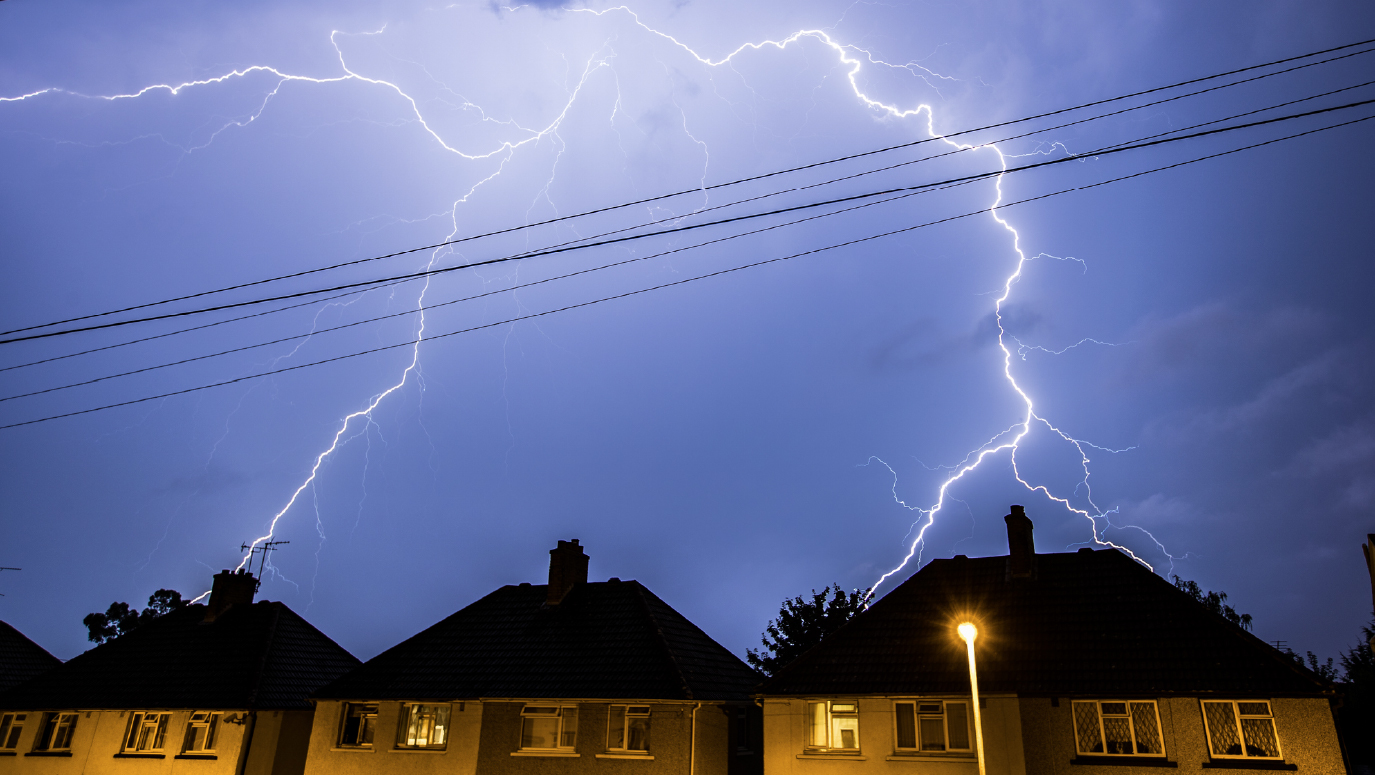“October 2023 to March 2024 was the wettest winter on record for England and Wales in at least 250 years”, that’s according to a recent report by the Climate Centre.
The report also highlights widespread flooding [in the UK] in early January 2024, associated with storms starting the previous autumn.
To raise awareness, last October the Environment Agency and the Geographical Association collaborated to run the UK’s first Flood Action Week. The campaign is back for 2025, encouraging people to take steps to protect their home from flooding, sign up for flood alerts, and to increase knowledge about how to respond to an imminent flood warning.
What is a flood?
Floods are natural events caused by heavy rainfall or high tides. While you might think your home won’t get flooded, an Environment Agency report states that at least one in six properties is at risk of flooding in England, so it’s important to be prepared.
How to prevent or reduce flood damage
Remember, you don’t have to live in or near a flood risk area to be affected by flooding; heavy rain can also overwhelm drainage systems.
Steps to take:
- Find out if your home is in a flood risk area. You can do that by using the Government’s Flood Map for Planning where you can also sign up for free flood text alerts. During prolonged heavy rain listen to local radio or television for warnings.
- Keep your important documents safe and dry. Store documents like insurance policies, bank details and useful contact numbers in a dry, easy to get to place. Upstairs is best.
- Make sure you know how to turn off gas and electricity at short notice. Check you can get to your electricity mains or gas tap and only turn them off if it’s safe to do so.
- Move what you can. If a flood warning is imminent, help reduce damage by putting things in higher places or moving them upstairs. If there’s time, roll up rugs and put them in a dry place. Take down curtains or lift them over their curtain rails to keep them out of the way.
- Install Proven Flood Resistance Measures as recommended by The National Flood Forum and The Environment Agency. These include things like flood boards and barriers, non-return valves and air brick covers, over more traditional methods such as sandbags. If you already have them fitted, make sure they’re in the correct position to prevent, delay or slow flood water from entering your home. If you don’t already have these and live in a high-risk area, then government backed schemes like the National Flood Forum and FloodRe may be able to help.
- Prepare a flood emergency kit. Include key personal documents, a torch, a radio – and extra batteries. Warm clothing, blankets, rubber gloves, boots, a first aid kit and cleaning equipment could also come in handy. Try to keep a stock of food, can opener and bottled water handy.
- Follow local safety advice. If you’re advised to leave your home because of flooding, follow local advice and have a plan for somewhere safe you can go. Never attempt to drive through flood water as it can flood your engine, damage your car and risk blocking the escape route for others.
What to do after a flood
Despite your best efforts to reduce the impact, a severe flood is likely to leave behind damage to your home and possessions.
Here’s what you should do after a flood:
- Contact your insurer as soon as possible. Churchill customers can log a claim via the app or online, visit the Churchill claims page to find out more.
- Check with the claims team if you need to move to alternative accommodation. They will also need to know how to contact you.
- Turn off the electricity at the mains if it’s safe to do so. If water has flooded wiring or electrical systems, don’t touch them before you have arranged a professional inspection.
- Wash taps and allow them to run for a few minutes before use.
- Open doors, windows and cupboards to ventilate the house, but make sure your house and valuables are secure.
- Dry out rugs and cushions but don’t lift carpets unless absolutely necessary as they may shrink.
- Restock any supplies that you have used as soon as possible to make sure you’re prepared in the event of another flood.
- Don’t rush to redecorate your home as it can take weeks for a flood-damaged property to fully dry out.
- Take photographs of the damage to your building and contents as they may help with the settlement of your claim.
- Don’t throw away ruined possessions as they’ll need to be assessed as part of any claim.
For more help and advice during a flood, call the Environment Agency’s Floodline on 0345 988 1188 and stay tuned to local radio. You can also sign up to receive email or text alerts from Floodline.




